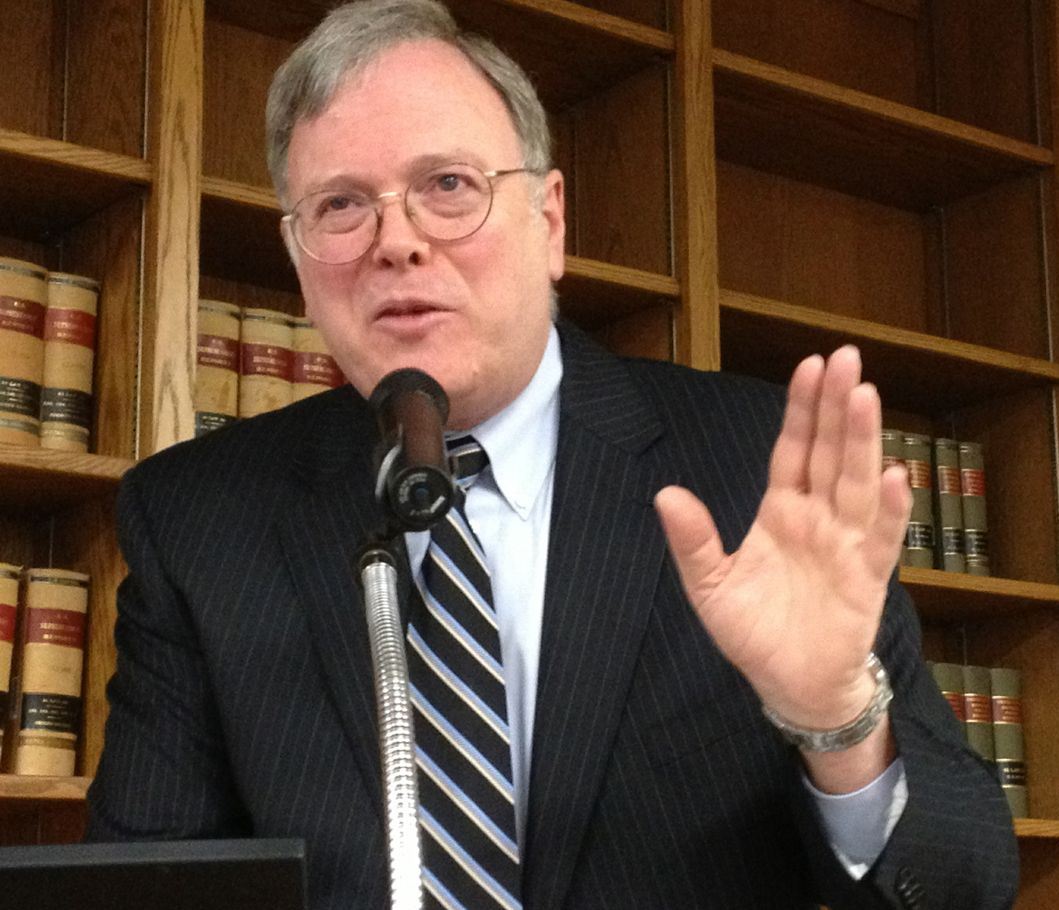Professor Cole Durham at Discussion Series: “Against Free Exercise Reductionism”

W. Cole Durham, Jr., Director of The International Center for Law and Religion Studies and Susa Young Gates Professor of Law at Brigham Young University, J. Reuben Clark Law School, presented the first lecture in the third Religious Freedom Discussion Series on Wednesday, 20 March 2013. Professor Durham’s topic was “Against Free Exercise Reductionism.”
- The PowerPoint presentation: download here.
- The recording of the live Webinar: mp4 format wmv format
A growing number of voices are suggesting that a separate constitutional protection for free exercise of religion is redundant and that other rights would suffice to give the protection needed. These arguments are being made at both the national and international level. The lecture described various versions of this idea that are emerging, and asserted that such argumentation is both misconceived and dangerous. A major portion of the lecture was aimed at framing arguments that can be used to counter such reductionist efforts.
Excerpts from Professor Durham’s text
Freedom of religion or belief is generally recognized as the oldest of the internationally protected human rights. It can well be called the grandparent of other human rights. In the United States the right to freedom of religion or belief is a first freedom, even the first freedom, not merely because of its position in the First Amendment to the Constitution but because of its profound links to the core of human dignity, to the very center of our normative consciousness, to conscience, to the sacrality of human persons, and to all that calls us to what is highest in human affairs.
But why should religion, or freedom of religion, have such priority status? How does one respond to reductionist claims that the right to freedom religion or belief is essentially redundant in a modern constitutional world with robust protections for freedom of expression (including symbolic conduct), association, and strong anti-discrimination norms? The questions give rise to a puzzle that goes to the core of liberal theory.
Redundancy arguments, said Professor Durham, have growing force in our equalitarian environment and pose a genuine threat to religious freedom. “We are witnessing a paradigm shift from freedom to equality norms as the deep structure of human rights, and key dimensions of freedom of religion or belief disappear or suffer deemphasis as a result of this shift.” Among the counterarguments to those supporting such a shift, Professor Durham highlighted three:
- The redundancy arguments are virtually always made in support of a secularist agenda, and they typically foster secularism as opposed to secularity. That is, the concern is to advance secularism as an ideology and end in itself, as opposed to secularity conceived as a neutral framework welcoming a wide range of world views.
- Rights that have different centers of gravity may not allow the same flexibility for doctrinal growth that the original freedom of religion doctrine has. Redundancy is an important safeguard against such shortfalls in coverage.
- Religious freedom is vital because it represents a crucial constraint on the social contract. Religious freedom is about more than protecting the values of secular enlightenment. Religious values have distinctive dignity, centrality, and importance not adequately captured by enlightenment notions of freedom of speech, association, and equality. Freedom of religion is about protecting comprehensive worldviews the frameworks within which individual ideas and norms are born, nurtured, and given meaning. It is about protecting the norm-generating, nurturing, and transmitting process. It protects the seedbeds of pluralism, generating the ideas and social arrangements that give the other rights their content and their significance.
A final area of erosion and loss is drawn from the domain of virtue ethics, and in particular, from what Paul Woodruff1 has referred to as the forgotten virtue of reverence. This provides one additional ground for affirming that religious freedom is not redundant, but for more importantly, it underscores society’s deep need to provide protection to freedom of religion and belief. Reverence is the best reminder that human things, including states, need to be subjected to limits, and it is particularly vital to the flourishing of modern pluralistic societies.
Religious freedom is vital, and can never be redundant, said Professor Durham in conclusion, because it protects and cultivates the insights and the wellsprings of reverence. It is not just one among many human rights; it is foundational for all the others. By protecting the space in which very different individuals and communities experience reverence, freedom of belief opens the possibility for dignity to unfold and for other rights to take root and grow. It provides legal protection for the activities and institutional contexts in which the fragile virtue of reverence can flourish, and without which society is imperiled and impoverished. In so doing, it protects a dimension of human existence that the more secular values of speech, association and equality never fully grasp. It has an ontological depth that corresponds to the magnitude of the human capacity to feel and respond to reverence and sacrality2—whether reverence or sacrality take religious or secular forms, and whether it is experienced directly or sensed in the lives of others. It recognizes both the sanctity of conscience and the limits that conscience sets. In the end, freedom of conviction is vital because it facilitates the ability of human beings to build social worlds open to the best that human beings can be and become.
1 See Woodruff, Reverence: A Forgotten Virtue, Oxford University Press, 2002.
2 See Hans Joas, The Sacredness of the Person: A New Genealogy of Human Rights (Alex Skinner, trans.), Georgetown University Press, 2013.